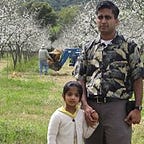Wendell Berry Writes
Wendell Berry Writes…………..
Louis Bromfield liked to
point out that the people of France survived crisis after crisis
because they were a nation of gardeners, who in times of want
turned with great skill to their own small plots of ground. And F.
H. King, an agriculture professor who traveled extensively in the
Orient in 1907, talked to a Chinese farmer who supported a
family of twelve, “one donkey, one cow… and two pigs on 2.5
acres of cultivated land” — and who did this, moreover, by agricultural methods that were sound enough organically to have
maintained his land in prime fertility through several thousand
years of such use. These are possibilities that are readily
apparent and attractive to minds that are prepared to Think
Little. To Big Thinkers — the bureaucrats and businessmen of
agriculture they are quite simply invisible. But intensive, organic
agriculture kept the farms of the Orient thriving for thousands of
years, whereas extensive-which is to say, exploitive or
extractive-agriculture has critically reduced the fertility of
American farmlands in a few centuries or even a few decades.
A person who undertakes to grow a garden at home, by practices
that will preserve rather than exploit the economy of the soil, has
set his mind decisively against what is wrong with us. He is
helping himself in a way that dignifies him and that is rich in
meaning and pleasure. But he is doing something else that is
more important: he is making vital contact with the soil and the
weather on which his life depends. He will no longer look upon
rain as an impediment of traffic, or upon the sun as a holiday
decoration. And his sense of man’s dependence on the world will
have grown precise enough, one would hope, to be politically
clarifying and useful.
What I am saying is that if we apply our minds directly and
competently to the needs of the earth, then we will have begun
to make fundamental and necessary changes in our minds. We
will begin to understand and to mistrust and to change our
wasteful economy, which markets not just the produce of the
earth, but also the earth’s ability to produce. We will see that
beauty and utility are alike dependent upon the health of the
world. But we will also see through the fads and the fashions of protest. We will see that war and oppression and pollution are
not separate issues, but are aspects of the same issue. Amid the
outcries for the liberation of this group or that, we will know
that no person is free except in the freedom of other persons, and
that man’s only real freedom is to know and faithfully occupy
his place — a much humbler place than we have been taught to
think — in the order of creation.
But the change of mind I am talking about involves not just a
change of knowledge, but also a change of attitude toward our
essential ignorance, a change in our bearing in the face of
mystery. The principle of ecology, if we will take it to heart,
should keep us aware that our lives depend upon other lives and
upon processes and energies in an interlocking system that,
though we can destroy it, we can neither fully understand nor
fully control. And our great dangerousness is that, locked in our
selfish and myopic economics, we have been willing to change
or destroy far beyond our power to understand. We are not
humble enough or reverent enough.
Some time ago, I heard a representative of a paper company
refer to conservation as a “no-return investment.” This man’s
thinking was exclusively oriented to the annual profit of his
industry. Circumscribed by the demand that the profit be great,
he simply could not be answerable to any other demand — not
even to the obvious needs of his own children.
Consider, in contrast, the profound ecological intelligence of
Black Elk, “a holy man of the Oglala Sioux,” who in telling his
story said that it was not his own life that was important to him,
but what he had shared with all life: “It is the story of all life that is holy and it is good to tell, and of us two-leggeds sharing in it
with the four-leggeds and the wings of the air and all green
things….” And of the great vision that came to him when he was
a child he said: “I saw that the sacred hoop of my people was
one of many hoops that made one circle, wide as daylight and as
starlight, and in the center grew one mighty flowering tree to
shelter all the children of one mother and father. And I saw that
it was holy.”
